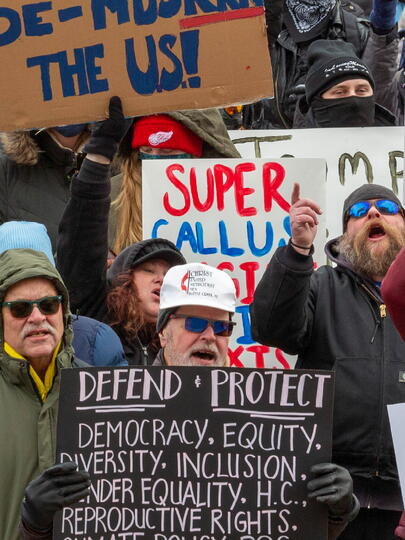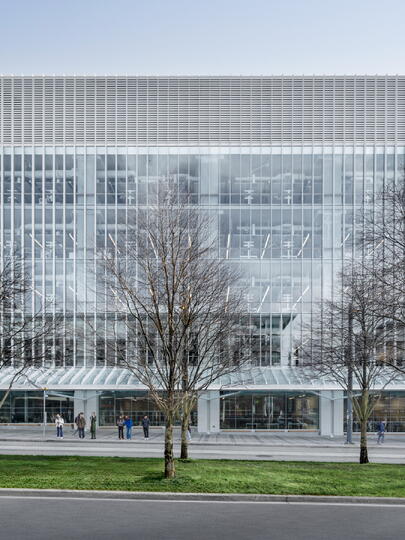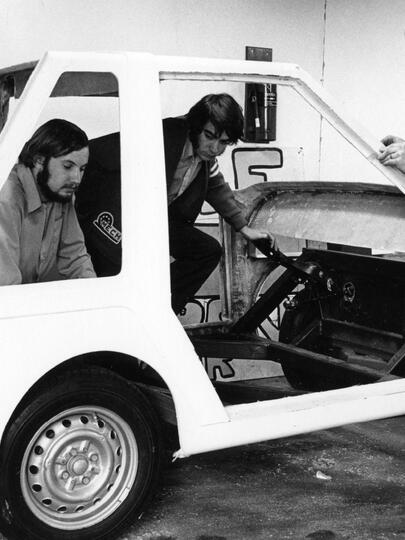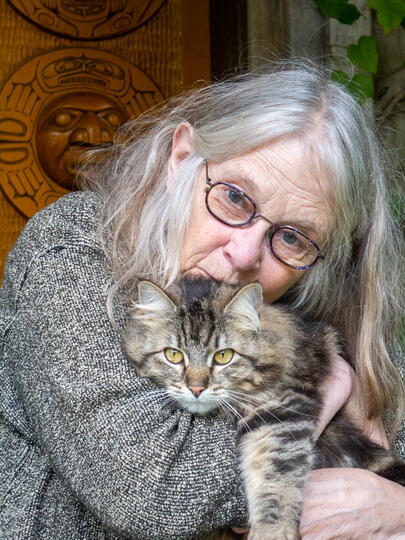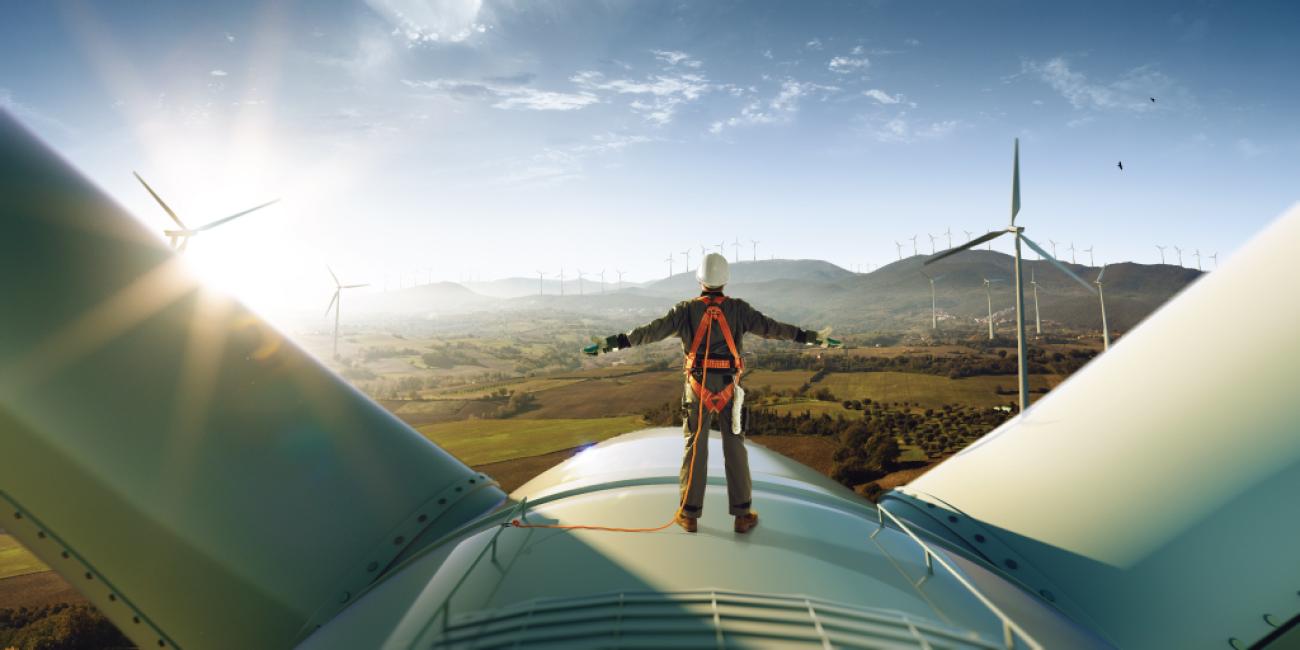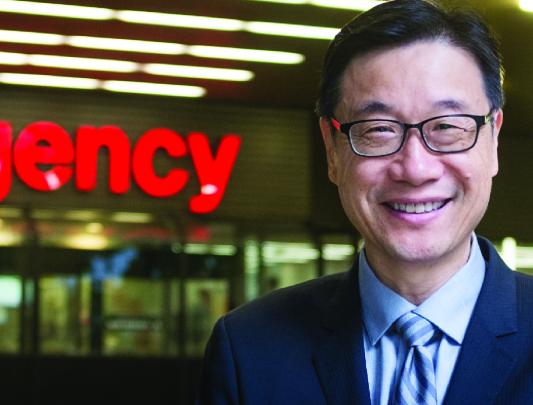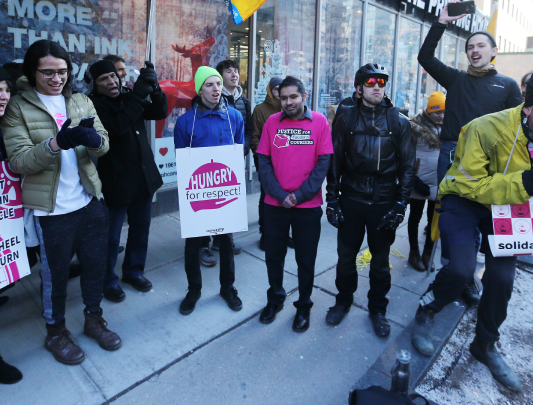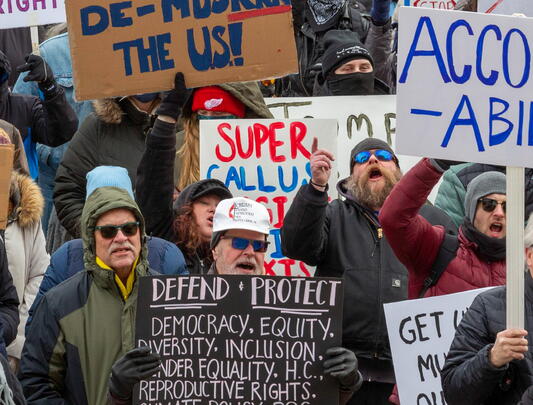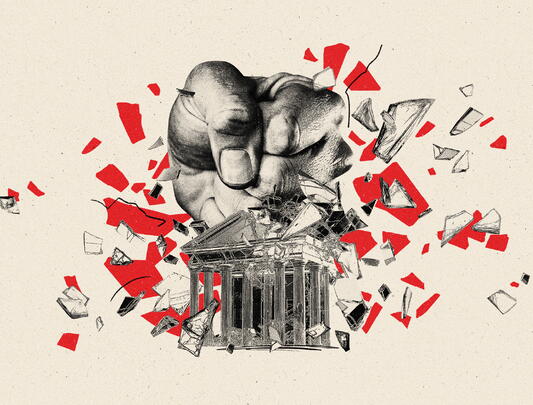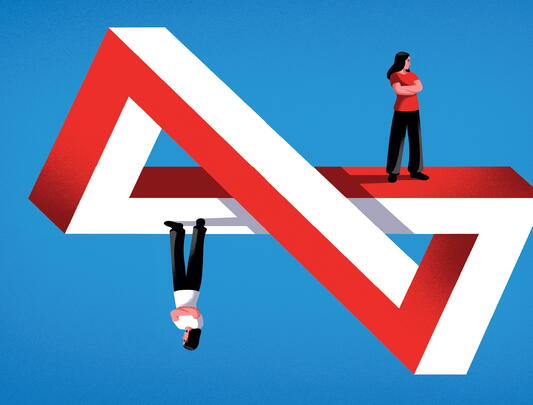The fossil fuel workers switching to clean energy jobs
A new career portal is supporting their transition.
Two UBC alumni have developed a skills transition platform designed to help fossil fuel industry workers make the leap to the clean energy sector — a critical step towards achieving a zero-carbon emissions future.
Called the Climate Career Portal, it was launched on March 22 by Iron & Earth, an organization led by oilsands workers. Iron & Earth was created in 2016 in reaction to a drop in oil prices that resulted in 100,000 labourers being handed their pink slips. The unemployed workers — disillusioned with the fossil fuel industry’s boom and bust cycles — realized that their trade skills might be transferable to the clean energy sector. But how could they facilitate the transition?
Into this conundrum stepped Sally Lin (BA’21), who majored in political science and human geography and now lives in Paris, where she works for UNESCO as a futures literacy designer. Lin and several classmates presented a skills-transition platform concept in 2019 for a UBC Smart Cities class. This would be the seed for the Climate Career Portal.
Lin knew UBC physics student Rohan Nuttall (BSc’18), who now works for an artificial intelligence company in San Francisco, and together the pair connected with Iron & Earth in mid-2020 to discuss the possibility of bringing the concept to life. Iron & Earth was enthused, so Lin and Nuttall got to work — initially as volunteers.
Needing to assess oil workers’ attitudes and needs, the pair looked to a variety of sources, including a 2021 Abacus Data poll. More than two-thirds of the oil and gas sector workers surveyed (nearly half of them from Alberta) wanted to switch careers to the clean energy sector. However, they needed help in two key areas: understanding how their skills — from pipefitting to welding to electrical work — matched up with net-zero jobs. The workers also sought resources and mentorship support.

As the portal developed, Lin focused on user-experience research, web design, and content development. Nuttall was responsible for technical product management, including developing the data and algorithms needed to get the portal up and running.
Nuttall says that the transition to a net-zero economy is fundamentally an infrastructure problem, with labour playing a key role in transitioning the economy in the coming decades. All the skills currently used to build oil fields can be used to construct geothermal plants, carbon capture facilities, and wind turbines, he says.
The portal is timely, especially with a burgeoning clean-energy sector. In 2021 in Canada, the sector employed 430,500 people, according to Clean Energy Canada. The number is projected to grow almost 50 per cent to 639,200 by 2030. In February, the oil and gas sector employed 184,100 workers, according to Careers in Energy.
BC Minister of Labour Seamus O’Regan took to Twitter to applaud the new portal after its March launch: “Who the heck is going to do the hard work of lowering emissions and building up renewables? Canadian building trades and our operating engineers and ironworkers — this crowd knows what they’re doing.”
Nuttall says that the Climate Career Portal was developed not just as a job platform but a hub-and-spoke model with many partners. These include the Canadian government, which pledged earlier this year to support workforce development in sectors that contributed to a low-carbon economy, as well as the petroleum industry and associations representing renewable energy. The portal presents a “fully integrated one-stop shop to help oil and gas workers understand exactly how their skills are applicable in the net-zero economy while helping them better understand where opportunities for training and employment are located,” Nuttall says.
more than two-thirds of the oil and gas sector workers surveyed (nearly half of them from alberta) wanted to switch careers to the clean energy sector.
The portal also provides training programs varying from a few days to courses leading to certification or a diploma. “It’s showing them different options to help their transition pathway,” says Lin, while providing a way out of the “moral dilemma” oil and gas workers find themselves in. (The Intergovernmental Panel on Climate Change just released a grim report stating that greenhouse gas emissions must peak by 2025 if the planet has any hope of limiting future heating to 1.5C above pre-industrial levels.) By transitioning into the clean energy jobs, they become part of the climate-crisis solution, yet can still provide for their families, Lin says.
The portal’s future will be driven by demand. There are plans for expansion, including developing customized career blueprints showing how fossil fuel industry skills can transition to clean-energy jobs. The portal will also be seeded with such critical information as financial aid, grants, job postings, training, and mentorship programs.
The running and development of the Climate Career Portal was recently turned over to another UBC grad, chemical engineer Jodie Hon (BASc’15), who has joined Iron & Earth as its Innovation & STEM manager. Like many who’ll be using the portal, Hon began her career in oil and gas with Calgary-based Shell Canada, doing office and field work. Her love of wilderness — “there’s something about being out in pristine nature that makes you feel really strongly about protecting it” — prompted her move into clean energy, working as a project engineer in low-carbon district energy systems with Vancouver-based Creative Energy.
the transition to a net-zero economy is fundamentally an infrastructure problem, with labour playing a key role in transitioning the economy in the coming decades.
Hon will expand the hub-and-spoke model and lead future development of the platform. She is confident that the portal will provide the impetus for an increasing number of oil and gas workers to make the jump to clean energy. “There’s a ton of renewable energy companies looking to access their talent and skills,” and Iron & Earth will support workers in transitioning, says Hon. She will focus on creating customized career plans, or “blueprints,” allowing fossil fuel workers to map out their goals. An expanding mentorship program will provide personalized guidance, peer support and encouragement for the transition. Resources for Indigenous workers and Indigenous-led projects will also be increased, says Hon. “We’re hoping to have 250 people find relevant employment in the first two years, and 1,000 people create a career blueprint and join our mentorship program in the first three years.”
Part of the attraction for fossil fuel workers will be security, Hon says. “The renewable energy industry has a lot more stability, because it’s continuously growing, and renewable energy is inherently localized. This helps create energy independence for countries as well.”
The creation of the portal highlights the effectiveness of teamwork among young people who want to make a difference to the climate crisis caused by greenhouse gases. “All youth these days are aware of the impending risks of climate change, and it’s our generation who’re going to face the consequences,” says Hon.
The portal is a stone in the rocky path towards zero carbon emissions future, adds Lin. “To address complex challenges such as climate change will take all of us working together.”
